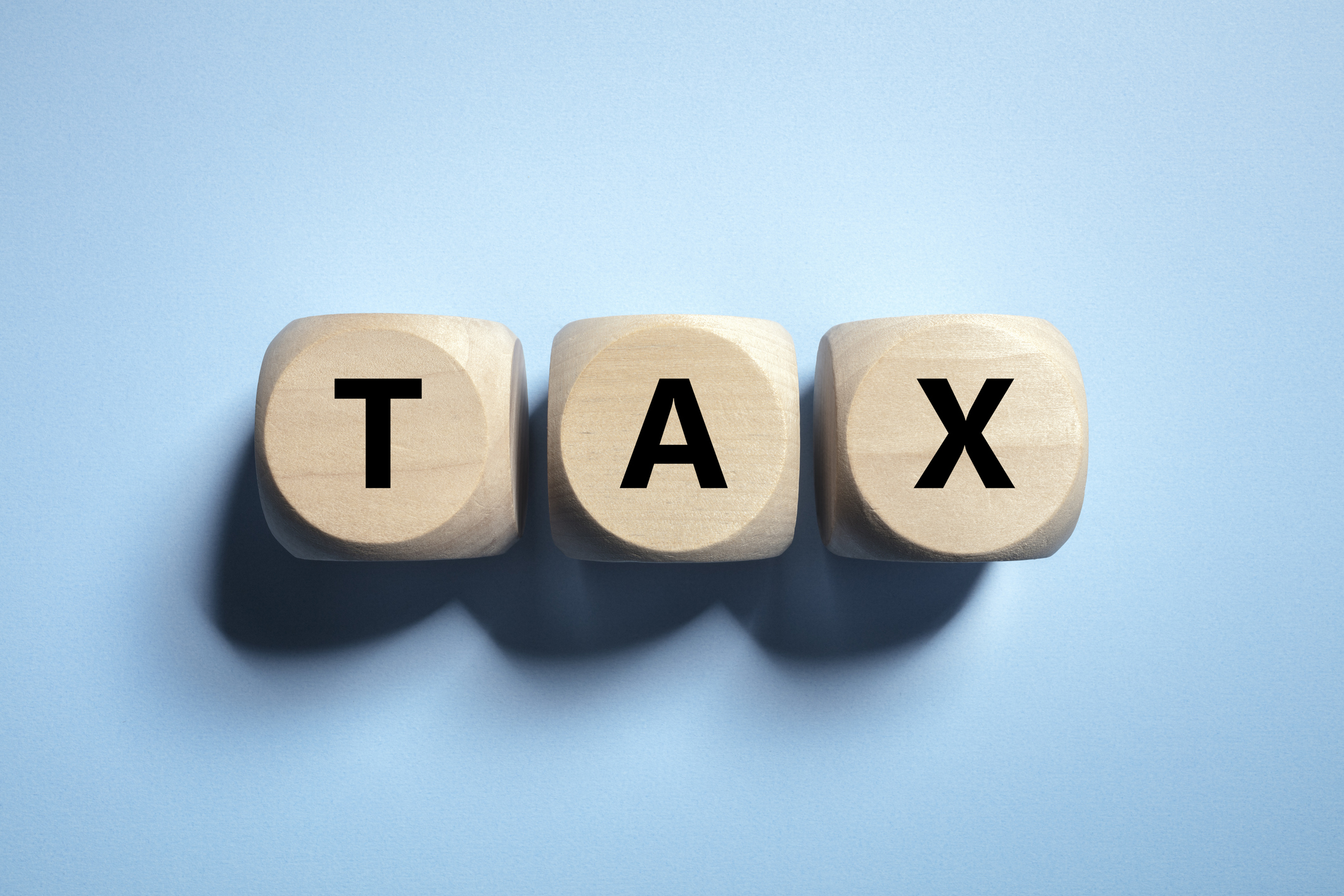Medicare Tax: Five Things Every Worker Needs to Know
It is important to know how Medicare tax works since it's taken from your paycheck.


Profit and prosper with the best of Kiplinger's advice on investing, taxes, retirement, personal finance and much more. Delivered daily. Enter your email in the box and click Sign Me Up.
You are now subscribed
Your newsletter sign-up was successful
Want to add more newsletters?

Delivered daily
Kiplinger Today
Profit and prosper with the best of Kiplinger's advice on investing, taxes, retirement, personal finance and much more delivered daily. Smart money moves start here.

Sent five days a week
Kiplinger A Step Ahead
Get practical help to make better financial decisions in your everyday life, from spending to savings on top deals.

Delivered daily
Kiplinger Closing Bell
Get today's biggest financial and investing headlines delivered to your inbox every day the U.S. stock market is open.

Sent twice a week
Kiplinger Adviser Intel
Financial pros across the country share best practices and fresh tactics to preserve and grow your wealth.

Delivered weekly
Kiplinger Tax Tips
Trim your federal and state tax bills with practical tax-planning and tax-cutting strategies.

Sent twice a week
Kiplinger Retirement Tips
Your twice-a-week guide to planning and enjoying a financially secure and richly rewarding retirement

Sent bimonthly.
Kiplinger Adviser Angle
Insights for advisers, wealth managers and other financial professionals.

Sent twice a week
Kiplinger Investing Weekly
Your twice-a-week roundup of promising stocks, funds, companies and industries you should consider, ones you should avoid, and why.

Sent weekly for six weeks
Kiplinger Invest for Retirement
Your step-by-step six-part series on how to invest for retirement, from devising a successful strategy to exactly which investments to choose.
While many are familiar with Medicare coverage, understanding Medicare tax, which involves everything from mandatory payroll deductions to additional taxes for high earners, is important for all workers, including those who are self-employed.
With that in mind, here are five things you need to know about Medicare tax, including what it is, who pays, and current rates.
What is Medicare tax?
Knowing how tax dollars are allocated to fund parts of the Medicare program can help you understand your Medicare tax liability.
From just $107.88 $24.99 for Kiplinger Personal Finance
Become a smarter, better informed investor. Subscribe from just $107.88 $24.99, plus get up to 4 Special Issues

Sign up for Kiplinger’s Free Newsletters
Profit and prosper with the best of expert advice on investing, taxes, retirement, personal finance and more - straight to your e-mail.
Profit and prosper with the best of expert advice - straight to your e-mail.
Medicare is a U.S. federal health insurance program designed for people age 65 or older. Some people under age 65 with specific disabilities may also be eligible for Medicare. Medicare has different Parts: A, B, C, and D.
Medicare Part A helps pay for inpatient hospital stays, skilled nursing facilities, hospice care, and home health care services. Unlike Medicare Part B (medical insurance) and Part D (prescription drug coverage), which are partially funded through premiums and general revenue, payroll taxes primarily finance Medicare Part A.
Medicare taxes are part of the Federal Insurance Contributions Act (FICA). They are automatically deducted from employees' paychecks to fund Medicare and Social Security programs.
Note: According to federal data, more than 60 million people currently use Medicare. However, the number of people using Medicare is expected to grow, which has caused concern over the long-term viability of Medicare and other programs like Social Security.
1. Who has to pay Medicare tax?
Employed U.S. workers, including non-citizens, are required to pay Medicare tax.
- These deductions from your paycheck are mandatory.
- The employer and the employee each contribute to Medicare taxes. (More on that below.)
2. Medicare tax rate
The Medicare tax rate is another thing you need to know.
- It’s 2.9% of earned income and wages.
- As a W-2 employee, you pay half of that tax (1.45%), and your employer pays the other half, 1.45%.
Medicare taxes are not subject to an income cap, unlike Social Security taxes, which are also automatically deducted from your paycheck. Social Security taxes have a wage base limit adjusted for inflation. That means the Social Security tax does not apply to income above that limit.
With Medicare tax, since there is no income limit, all your earned income and wages are subject to Medicare tax.
3. Additional Medicare tax for high-earners
While the standard Medicare tax rate applies to most individuals, high-income earners may be subject to Medicare surtaxes, including the Additional Medicare Tax and Net Investment Income Tax.
- The “Additional Medicare Tax” is 0.9% and applies to earned income exceeding certain thresholds.
- For 2025, individuals with earned income over $200,000 ($250,000 for married couples filing jointly) may be subject to the additional Medicare tax.
Note: Employers don’t have to pay a matching .9% with the additional Medicare tax.
What about the net investment income tax (NIIT)? NIIT is another surtax on high earners to raise revenue. This is separate from the additional Medicare tax.
The Net investment income tax of 3.8% typically applies to income from investments such as capital gains, dividends, royalties, rent, and interest. The tax amount is based on your filing status and income. Similar to the additional Medicare tax, there is no employer-paid portion of NIIT.
In any case, high-income earners should be aware of additional Medicare tax liability and plan accordingly.
4. Self-employed have to pay Medicare tax
Self-employed individuals must pay the total 2.9% Medicare tax rate and any additional Medicare tax if they are high earners. The Self-Employed Contributions Act (SECA) requires self-employed people to pay taxes on their net earnings.
Self-employment taxes are typically calculated on net self-employment earnings and reported on the individual's federal income tax return.
- The self-employment tax rate is 15.3% (12.4% for Social Security and 2.9% for Medicare).
- For 2025, the first 176,100 of self-employment income is subject to Social Security tax since there is an income limit for Social Security tax.
- That’s up about 4.4% from the $168,600 Social Security tax limit in 2024.
However, income tax deductions can help lower your tax burden. You can deduct half of your Social Security tax on your federal return, but not as an itemized deduction. Your net earnings are reduced by half the amount of your total Social Security tax.
If you are self-employed with at least $400 in net earnings during the year, you should factor in Medicare taxes (along with relevant deductions) when planning your tax obligations.
5. Medicare Part A enrollment is automatic
Most people become eligible for Medicare benefits at age 65. Part A (hospital insurance) enrollment is automatic when you turn 65. Some get Part B (medical insurance) automatically, while others sign up for it if they want it.
Generally, if you or a spouse paid Medicare taxes for at least ten years, you may qualify for premium-free Part A.
It's important to understand your eligibility for Medicare benefits based on your work history and tax contributions, and know various enrollment deadlines. Keep in mind that, as Kiplinger has reported, there are several expenses Medicare doesn’t cover.
Medicare tax: Bottom line
All taxpayers, including employees, self-employed individuals, and retirees, need to know how Medicare taxes work. This includes mandatory payroll deductions and additional taxes for high earners. Having a good grasp of Medicare taxes can help you make informed financial decisions and plan for healthcare expenses before and during retirement.
If you have questions about how Medicare tax impacts you, consult a qualified and trusted financial advisor or tax planner.
Related
Profit and prosper with the best of Kiplinger's advice on investing, taxes, retirement, personal finance and much more. Delivered daily. Enter your email in the box and click Sign Me Up.

Kelley R. Taylor is the senior tax editor at Kiplinger.com, where she breaks down federal and state tax rules and news to help readers navigate their finances with confidence. A corporate attorney and business journalist with more than 20 years of experience, Kelley has helped taxpayers make sense of shifting U.S. tax law and policy from the Affordable Care Act (ACA) and the Tax Cuts and Jobs Act (TCJA), to SECURE 2.0, the Inflation Reduction Act, and most recently, the 2025 “Big, Beautiful Bill.” She has covered issues ranging from partnerships, carried interest, compensation and benefits, and tax‑exempt organizations to RMDs, capital gains taxes, and energy tax credits. Her award‑winning work has been featured in numerous national and specialty publications.
-
 Quiz: Do You Know How to Avoid the "Medigap Trap?"
Quiz: Do You Know How to Avoid the "Medigap Trap?"Quiz Test your basic knowledge of the "Medigap Trap" in our quick quiz.
-
 5 Top Tax-Efficient Mutual Funds for Smarter Investing
5 Top Tax-Efficient Mutual Funds for Smarter InvestingMutual funds are many things, but "tax-friendly" usually isn't one of them. These are the exceptions.
-
 AI Sparks Existential Crisis for Software Stocks
AI Sparks Existential Crisis for Software StocksThe Kiplinger Letter Fears that SaaS subscription software could be rendered obsolete by artificial intelligence make investors jittery.
-
 How to Open Your Kid's $1,000 Trump Account
How to Open Your Kid's $1,000 Trump AccountTax Breaks Filing income taxes in 2026? You won't want to miss Form 4547 to claim a $1,000 Trump Account for your child.
-
 In Arkansas and Illinois, Groceries Just Got Cheaper, But Not By Much
In Arkansas and Illinois, Groceries Just Got Cheaper, But Not By MuchFood Prices Arkansas and Illinois are the most recent states to repeal sales tax on groceries. Will it really help shoppers with their food bills?
-
 7 Bad Tax Habits to Kick Right Now
7 Bad Tax Habits to Kick Right NowTax Tips Ditch these seven common habits to sidestep IRS red flags for a smoother, faster 2026 income tax filing.
-
 New Plan Could End Surprise Taxes on Social Security 'Back Pay'
New Plan Could End Surprise Taxes on Social Security 'Back Pay'Social Security Taxes on Social Security benefits are stirring debate again, as recent changes could affect how some retirees file their returns this tax season.
-
 Living in One State, Working in Another: How to Avoid a Tax Season Headache
Living in One State, Working in Another: How to Avoid a Tax Season HeadacheState Tax Living and working in two states can take a heavy toll on your paycheck and give you a headache come tax time. Here's what to know.
-
 10 Cheapest Places to Live in Colorado
10 Cheapest Places to Live in ColoradoProperty Tax Looking for a cozy cabin near the slopes? These Colorado counties combine reasonable house prices with the state's lowest property tax bills.
-
 New Gambling Tax Rule Impacts Super Bowl 2026 Bets
New Gambling Tax Rule Impacts Super Bowl 2026 BetsTaxable Income When Super Bowl LX hype fades, some fans may be surprised to learn that sports betting tax rules have shifted.
-
 Should You Do Your Own Taxes This Year or Hire a Pro?
Should You Do Your Own Taxes This Year or Hire a Pro?Taxes Doing your own taxes isn’t easy, and hiring a tax pro isn’t cheap. Here’s a guide to help you figure out whether to tackle the job on your own or hire a professional.